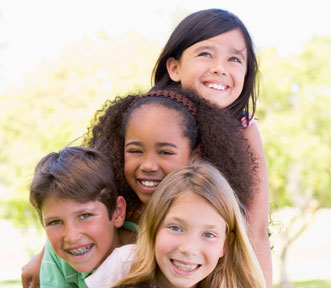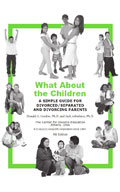
By Donald A. Gordon Ph.D. and Jack Arbuthnot Ph.D.
Children aged six to eight years old respond most often with grief. They express their grief through crying and sobbing; this happens with boys more than with girls. They also feel a deep yearning for the absent parent. The children will miss that parent intensely, even if their relationship with the parent was not good before the break-up. Since they don’t see the absent parent often, they usually won’t express the anger they feel toward him or her. They will express their anger toward the custodial parent, and they may blame him/her for the absence of the other parent. When contact with the absent parent is reduced, children at this age often believe that parent has stopped loving them. This reaction causes emotional trauma.
Young children often hope Mom and Dad will get back together. They may feel that it is their job to take care of and comfort their parents, and many will try to solve the problems between their parents. It is not healthy for young children to reverse roles with their parents.
Research tells us that children are affected when they see their parents fighting. It affects their ideas about how people solve problems with each other. Children do not get used to the fighting – instead, the fighting wears them down. Physical fighting is especially damaging: children will copy their parents and hit other children.
When parents try to get the child to take sides, there can be a “tug of war” on the emotions of a child. Some parents may tell their children that the other parent is bad, or that the other parent caused the problems. Each parent may really believe this simple view. Children caught in the middle are the most likely to lose this war.
How to Help Young Children
All children need protection from the hurts and anger of parents. They should not feel pressure to take sides, so never criticize the other parent in front of the children. They need to know that both parents still love them. They will be taken care of even if Mom and Dad do not live together.
Children must be able to spend time with the absent parent. They need to know it is okay to love that parent. Young children are not sure their parents still love them. So, they need more love and support now.
These important tips will help support the emotional adjustment of your young child:
- Avoid criticizing the other parent
- Promise access to the other parent
- Give clear and consistent affection
- Let them know of the other parent’s continuing care and love for them
- Avoid conflict in front of the children

Related Articles
For more information about children’s issues during separation and divorce, visit www.DivorceMagazine.com – you’ll find lots of informative articles on the subject.
See also:
How Divorce Affects Pre-School Children
How Divorce Affects Preteens
How Divorce Affects Teenagers







